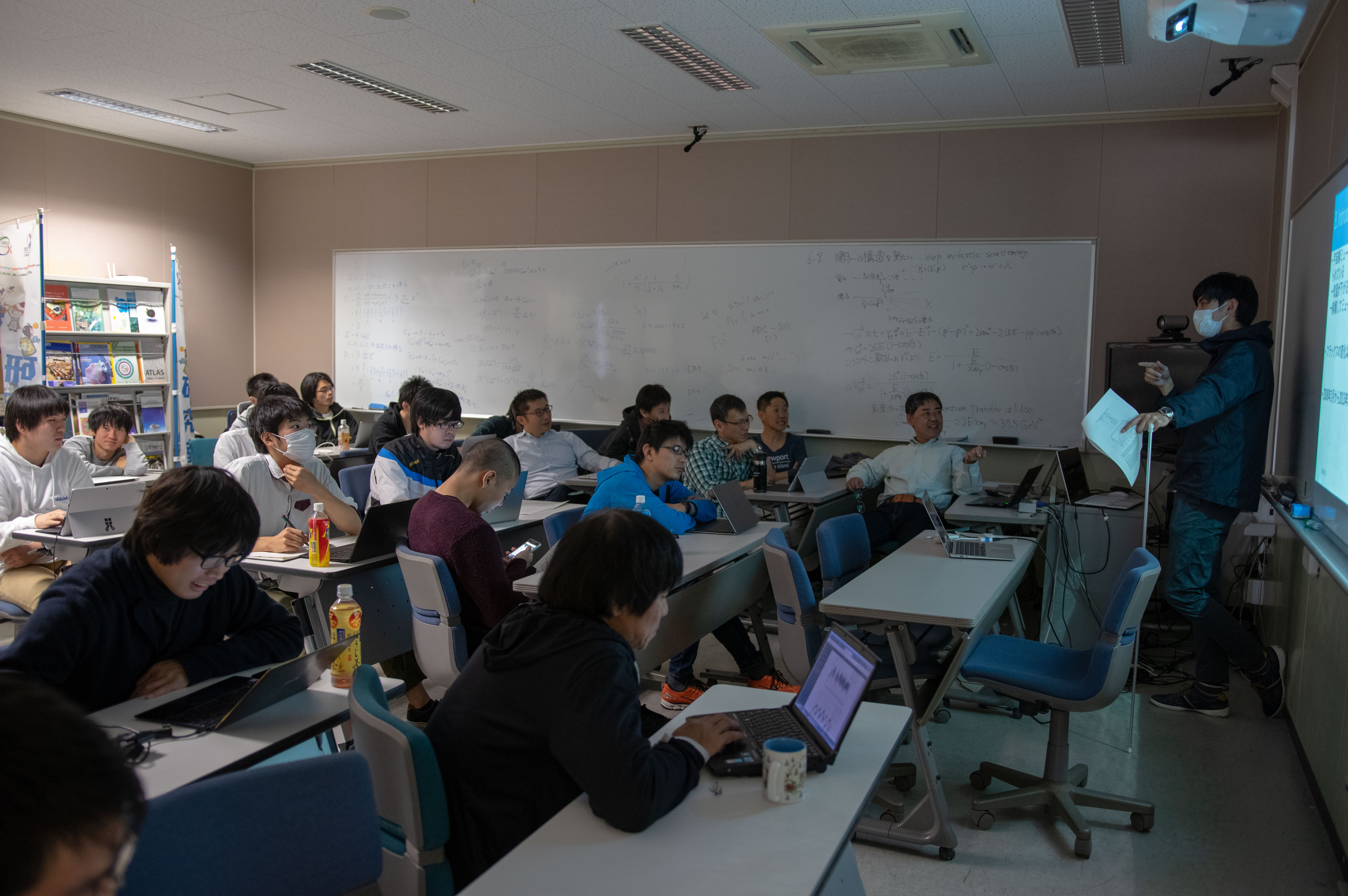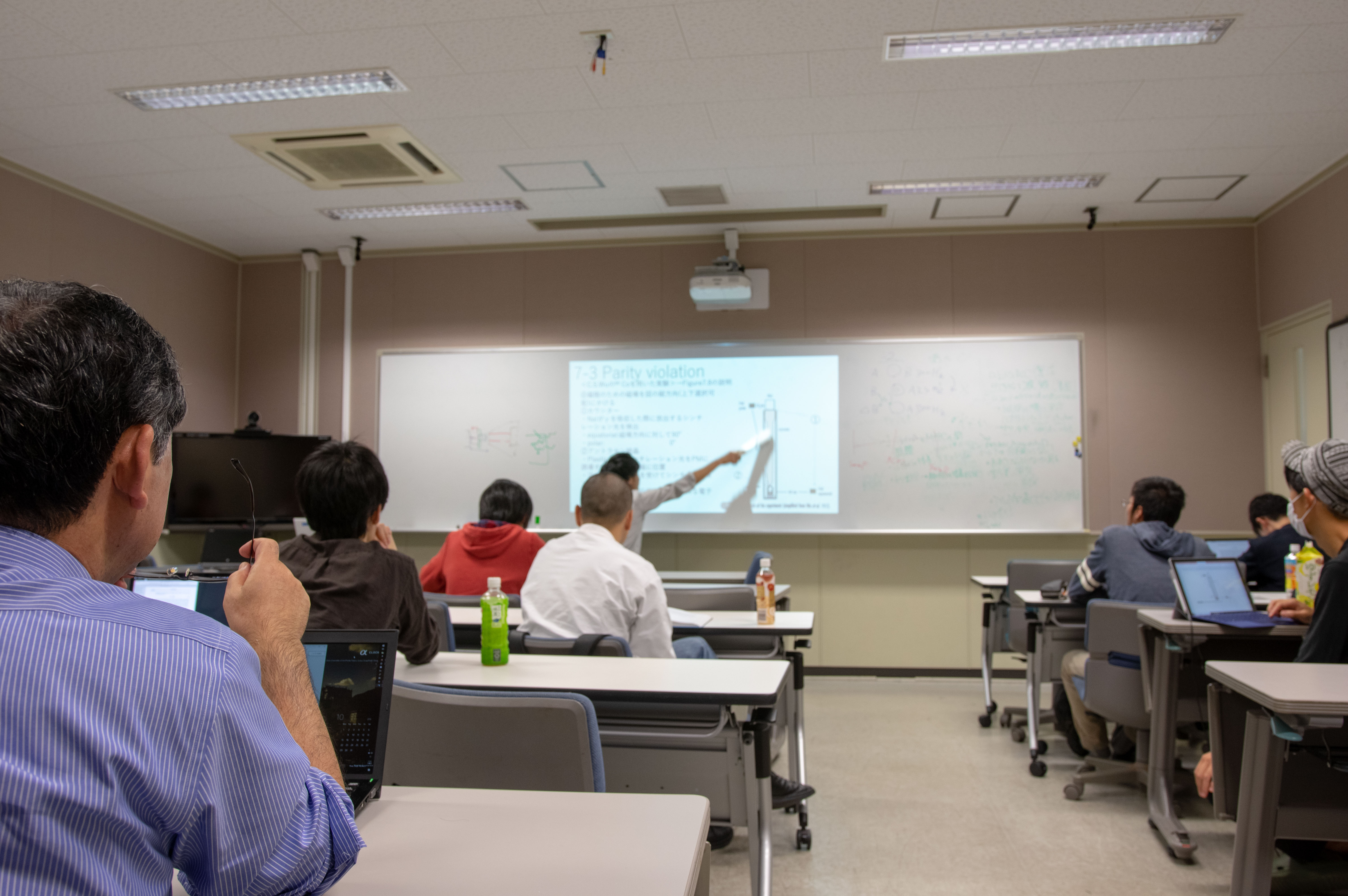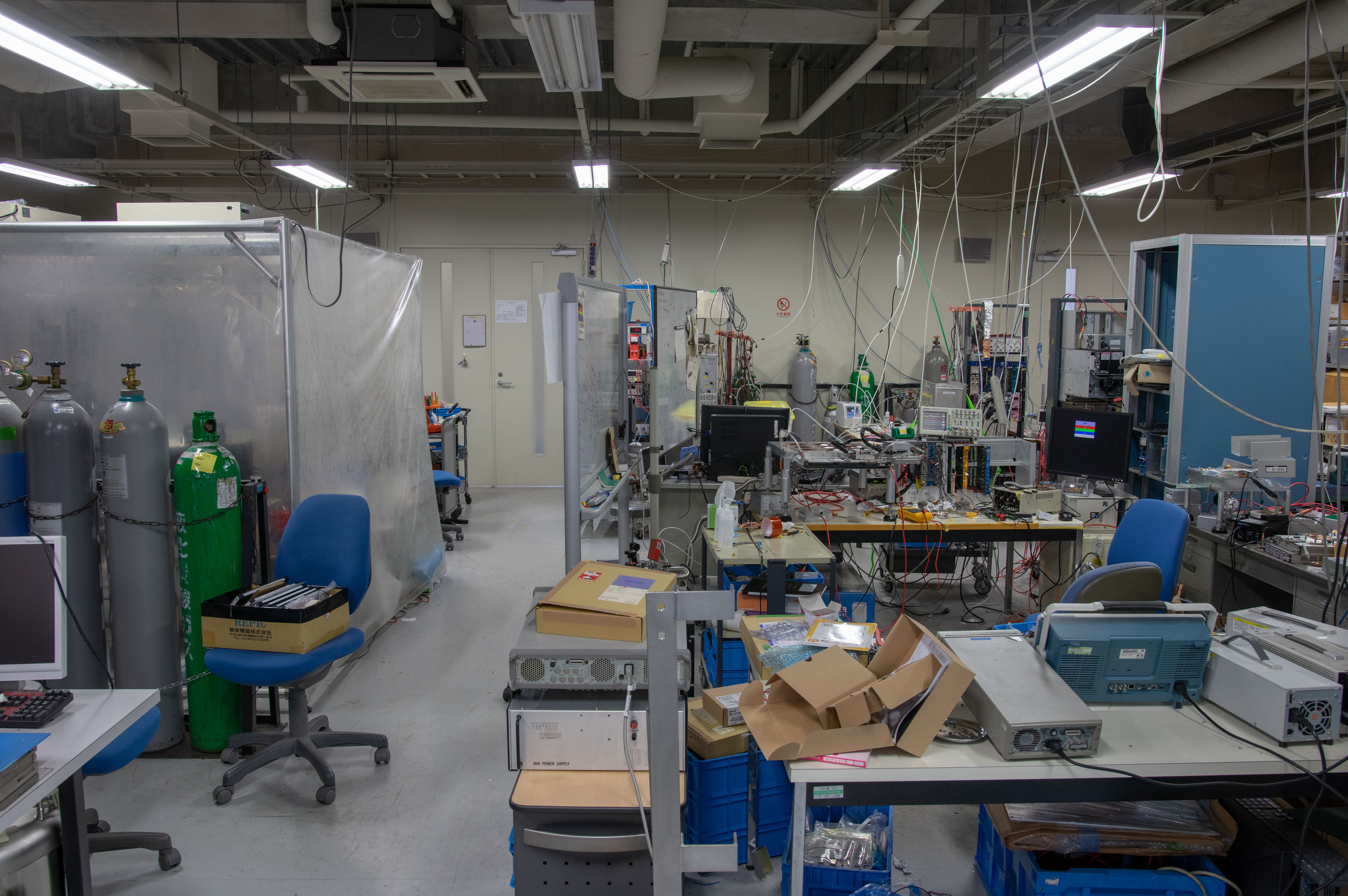





Our lab's research subject is to uncover the nature of elementary particles and cosmos through accelerator and astroparticle physics experiments. We naturally provide studying opportunities for students from all over the world through our PhD course and other educational programmes.
All the research projects are taken place in international context: either closer contact to other projects abroad or be a part of an international collaboration. Please contact us for detail.
We also have "open labo" events (twice per year) to introduce our research and educational programmes.
The first is at the end of April or beginning of May; the second is in the middle of June. We are looking forward to you attendence. Please refer to our web site of the graducate school of science (Japanese only for this information):
http://www.phys.sci.kobe-u.ac.jp/open_lab.html
Fourth-grade students belong to a particular lab to study experimental or theoretical physics. In our lab the students first learn about the basics on the experimental methods and techniques for particle physics as well as on very basic of particle physics theories. Later in the year students work on their own experiment.
Life for the fourth grade and reserach students
Past examples for students' experiments
A student of the graduate course joins to an experimental project as a researcher. Most of such projects are driven through international collaborations. You may be expected to be on site for short periods, either domestc or abroad, for meetings, presentations and practical works. The outcome should be summarised and presented in a conference, e.g. Japan Physics Society meetings, international conferences or workshops.
Life of master course students
A PhD course students are also researchers but in a more advanced stage. You will be concentrated on research and you may stay most of the periods to the experimental site. Presentation in JPS meeting as well as conferences/workshops would be more frequent.
Research activities
If you have qualified previous level of education (graduating a university or equivanet for the master course, or finishing the master course or equivalent for the doctor course), you are entitled to apply for research studentship for the graduate school of science of the Kobe University. You need to pay tuition. You will not be able to receive a dgree nor acquire any credits. Instead you work on researches and listen to lectures.
For application, you need to submit some documents and follow the instruction. Please ask us for detail.
We take various opportunities for social events: welcome party, "end of the grad school entrance examination" party, summer party, group trip, end-of-the-year party, farewell party etc. In addition, several labs in west Japan together meet and have an opportunity to get to know each other: cherry-blossom party (Kyoto-Osaka-Kobe + other high-energy physics labs in Kansai area), potato hot pot party on river side (by Nara Women's University High Energy Lab).
Some other records tell us that students have been planning many other events for sport, Gyoza dumpling party, Samma fish party, beach, BBQ etc. You are truely welcome to join!
